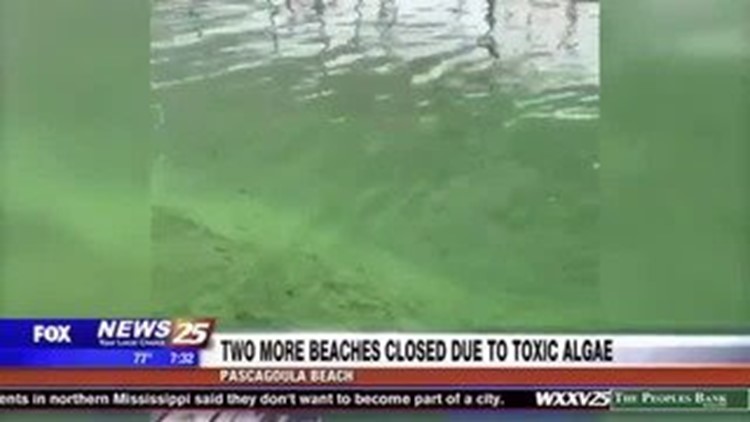(CNN) — Summer’s the perfect time to hit the beach — unless you live in Mississippi.
Along the state’s Gulf Coast, all 21 of the state’s beaches have been shut down for swimming due to a blue-green harmful algal bloom (HAB), according to the Mississippi Department of Environmental Quality (MDEQ).
HABs occur when “colonies of algae — simple plants that live in the sea and freshwater — grow out of control and produce toxic or harmful effects on people” or wildlife, the National Oceanic and Atmospheric Administration (NOAA) says.
The toxic algae can cause rashes, stomach cramps, nausea, diarrhea and vomiting, the state agency warned.
Though the state says people can still use the sand portion of the beaches, they should avoid water contact or consumption of anything from the waters “until further notice.”
The HAB was at least partly caused by the opening of the Bonnet Carre spillway in Louisiana, which has triggered “excessive” freshwater to the coastline, the Jackson Clarion Ledger reported.
Blooms can be caused by a variety of factors, including increases in nutrient levels from fertilizer run-off, low water flows, changes in water temperature or changes in ocean currents, the Centers for Disease Control and Prevention (CDC) says.
HABs aren’t rare. In fact, every US coastal and Great Lakes state experiences them, the NOAA says. However, they are popping up with increasing frequency due to climate change and increasing nutrient pollution, according to the NOAA.
HABs are detrimental to the health of the people and marine ecosystems, as well as local coastal economies who rely on revenue from fishing and tourism, the NOAA says.
If you think you may have been exposed to toxic algae, the CDC recommends calling your local poison information center or consulting your doctor about managing symptoms.



